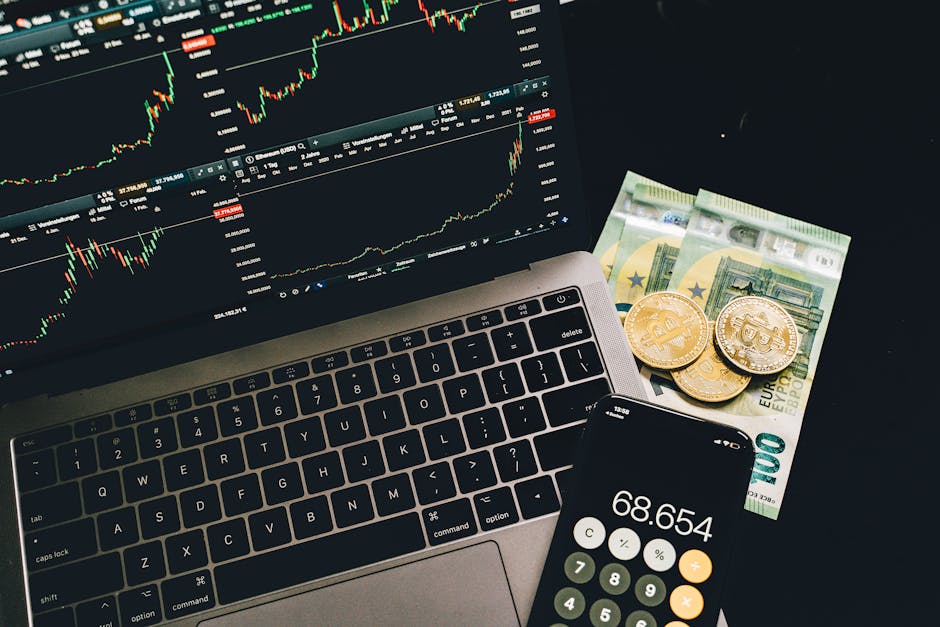The Role of Blockchain Technology Beyond Cryptocurrency
Blockchain technology has steadily established itself as a transformative innovation, extending far beyond its initial association with cryptocurrencies like Bitcoin. At its core, blockchain is a decentralized ledger system designed to securely record and verify transactions across multiple parties without the need for intermediaries. While the financial sector was the first to capitalize on its potential, industries such as supply chain management, healthcare, and even entertainment are now beginning to harness the versatility of this technology.

The appeal of blockchain lies in its transparency, immutability, and efficiency. By allowing participants to access a shared and tamper-proof record of information, it fosters trust and collaboration in environments where these have traditionally been hard to achieve. As its applications continue to diversify, blockchain is not just reshaping how industries operate but also redefining concepts of trust and value exchange across the globe.
Decentralized Solutions in Supply Chain Management
One of the most promising applications of blockchain is in supply chain management. Traditional supply chains often rely on manual processes and siloed databases, which can lead to inefficiencies, fraud, and lack of transparency. Blockchain addresses these challenges by providing a unified and secure digital ledger that all stakeholders can access.
- Transparency: Blockchain ensures that every transaction is recorded and visible to all parties involved. This reduces disputes and builds trust between suppliers, manufacturers, and retailers.
- Traceability: Products can be tracked from origin to consumer, enabling better quality control and faster identification of issues such as counterfeit goods or contamination.
- Automation: Smart contracts (self-executing agreements coded on the blockchain) automate processes like payments and compliance checks, saving time and reducing human error.
An example is Walmart's use of IBM’s Food Trust blockchain to trace produce from farm to shelf. The system allows them to pinpoint contamination sources within seconds rather than days, improving food safety while reducing waste.
Revolutionizing Healthcare Data Management
The healthcare industry grapples with challenges like data silos, unauthorized access, and inefficiencies in patient record management. Blockchain provides a secure framework for managing sensitive medical data while ensuring privacy and accessibility for authorized users.
Patients can have greater control over their medical records through blockchain-based systems. These systems allow individuals to grant specific healthcare providers access while keeping their data protected from unauthorized use. Blockchain can streamline clinical trials by securely managing data integrity, thus enhancing trust in research outcomes.
A notable example is Estonia’s national e-Health system, which uses blockchain technology to store and manage patient health records securely. The system provides citizens with seamless yet private access to their health data while preventing breaches or tampering.
Enhancing Intellectual Property Rights in Entertainment
Creators in the music, art, and entertainment sectors often face difficulties protecting intellectual property rights or receiving fair compensation for their work. Blockchain introduces an effective way to address these concerns through immutable records and automated royalty payments.
For instance:
- Ownership Verification: Blockchain can authenticate original works of art or music by recording ownership details on a decentralized ledger.
- Direct Payments: Artists can bypass intermediaries like record labels or galleries by receiving payments directly through smart contracts.
An example is Audius, a decentralized music streaming platform that uses blockchain to ensure artists are fairly compensated for streams without requiring traditional middlemen.
Strengthening Voting Systems
The democratic process relies heavily on trust in voting systems. Blockchain has the potential to make elections more secure and transparent by providing a verifiable record of each vote while protecting voter anonymity.
With blockchain-based voting platforms, voters can confirm their vote was counted without being able to alter or delete it. Additionally, authorities can quickly tally results without risking data tampering. Pilot projects such as Voatz in the United States have already demonstrated how blockchain could improve voter participation among remote or disenfranchised populations.
Sustainability Through Tokenization
Sustainability initiatives can benefit greatly from blockchain via tokenization, the process of converting assets into digital tokens that represent ownership or usage rights. Companies are using tokenized systems to incentivize eco-friendly behaviors or manage resources efficiently.
- Carbon Credits: Organizations can tokenize carbon offsets on a blockchain platform for trading or tracking purposes.
- Recycling Programs: Blockchain enables transparent monitoring of recycling efforts by assigning tokens as rewards for eco-conscious activities.
A key example is Plastic Bank’s initiative to reduce ocean plastic waste. Participants earn digital tokens for collecting plastic waste, which they can exchange for cash or essential goods via a blockchain-powered platform.
Blockchain technology has grown far beyond its original role within cryptocurrency ecosystems. Its ability to bring transparency, security, and efficiency makes it an invaluable tool across industries ranging from supply chain management to sustainability efforts. As more sectors adopt blockchain solutions tailored to their unique needs, this innovation continues reshaping how we interact with information and each other in increasingly meaningful ways.
This article was generated by AI